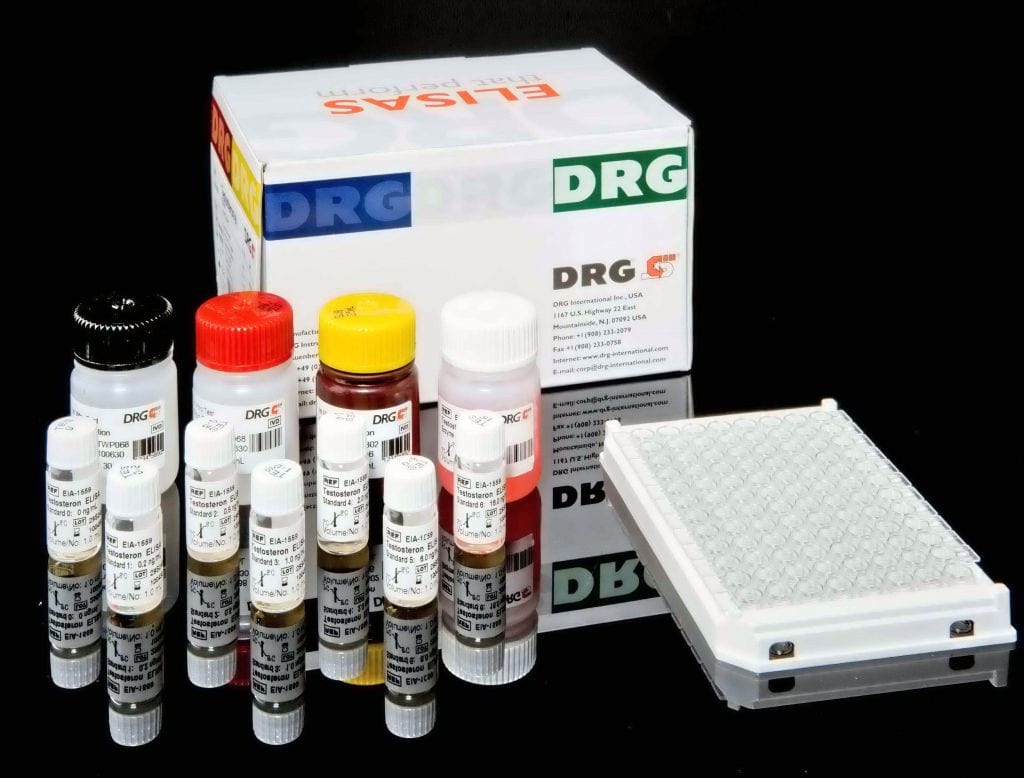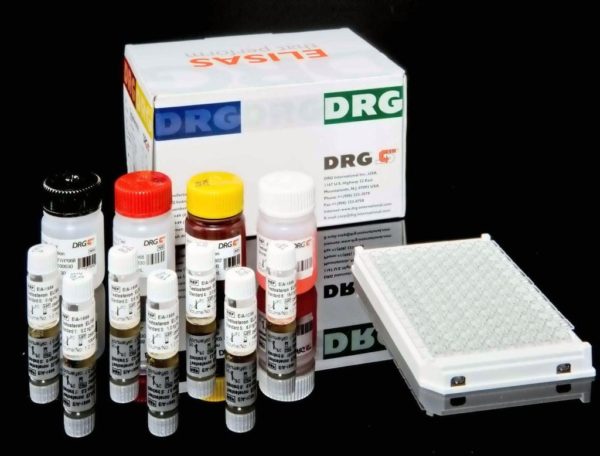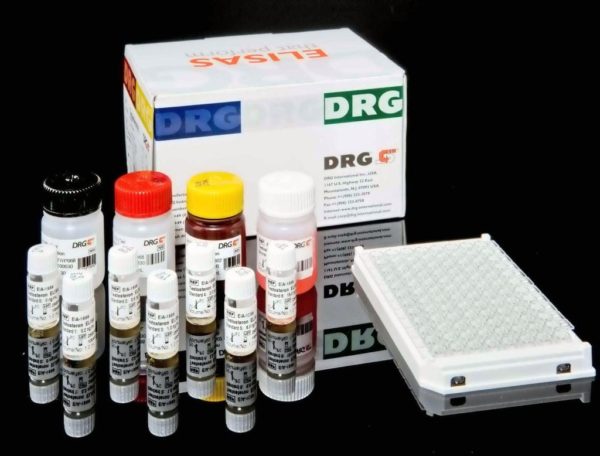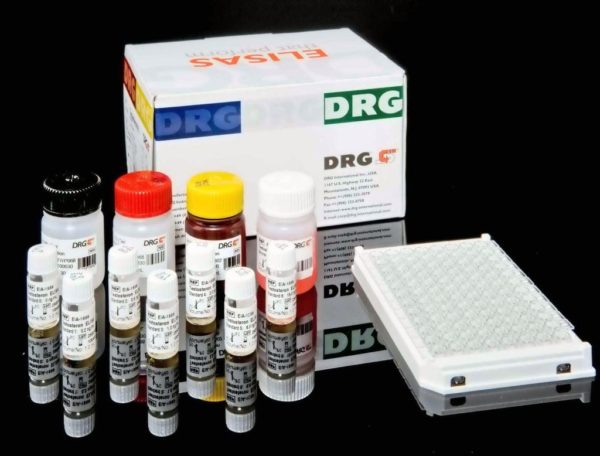Description
Anti-TG Ab is an ELISA test system for the quantitative measurement of IgG class autoantibodies against thyroglobulin (TG) in human serum or plasma.
This product is intended for professional in vitro diagnostic use only.
Highly purified human thyroglobulin is bound to microwells. The determination is based on an indirect enzyme linked immune reaction with the following steps:
Specific antibodies in the patient sample bind to the antigen coated on the surface of the reaction wells. After incubation, a washing step removes unbound and unspecifically bound serum or plasma components. Subsequently added enzyme conjugate binds to the immobilized antibody-antigen-complexes. After incubation, a second washing step removes
unbound enzyme conjugate. After addition of substrate solution the bound enzyme conjugate hydrolyses the substrate forming a blue coloured product. Addition of an acid stops the reaction generating a yellow end-product. The intensity of the yellow color correlates with the concentration of the antibody-antigen-complex and can be measured photometrically at 450 nm.
Thyroid disorders are the most prevalent of all autoimmune diseases. Thyroid autoimmune diseases are associated with the occurrence of differentiated autoantibodies and are thought to be related to a genetical pre-disposition.These autoantibodies are directed against membrane- located and/or extracellular antigens of the thyroid cells:Human Thyroglobulin (hTG), a water soluble glycoprotein with a molecular weight of approx. 660.000 Dalton, is the principal constituent of the thyroidal colloid sharing about 75 % of its mass. Synthesis of the thyroid hormones T3 and T4 is based on the oxidative iodination of tyrosine residues of the thyroglobulin molecule. Within the cell thyroglobulin is transported by the microsomes. Together with the secretion of T3 and T4 also small amounts of hTG are liberated into circulation.The microsomal antigen of the thyroid is an integral membrane protein of the microsomes. It has been characterised as the enzyme Thyroid Peroxidase (TPO) with a molecular weight of nearly 110.000 Dalton.The TSH-Receptor is a regulatory protein embedded into the thyroid cell membrane effecting synthesis and release of the thyroid hormones as well as cellular growth.The so-called Colloid-Antigen 2 CA2.Besides these antibodies to functional antigens antibodies directed against the circulating thyroid hormones T3 und T4 may occur. In Graves’ Diseases — an immunogenic form of hyperthyroidism — often additional antibodies occur, which are directed against eye muscle antigens. They cause the endocrine opthalmopathy. Autoantibodies are found in inflammatory diseases as well as in thyroid autoimmune disorders. Various symptoms of thyroid diseases, like goitre, thyroid pain, hyperthyroidism and hypothyroidism may be caused by immunogenic processes and the occurrence of organ specific antibodies. This underlines the clinical relevance for autoantibody determination for the assessment of thyroid diseases. The most important autoimmune diseases of the thyroid gland are: Hashimoto’s Thyroiditis, Primary Myxedema, Graves’ disease (often associated with endocrine opthalmopathy) and other asymptomatic thyroid diseases, for example postpartum thyroiditis. The simultaneous occurrence of Anti-TG and Anti-TPO autoantibodies seems to be related to their functional association. Tyrosine amino acid residues of the thyroglobulin molecule, as primary protein for the synthesis of the thyroid hormones T3 and T4, are actively iodinated in association with the thyroid peroxidase (TPO). TSH acts in stimulating synthesis and release of thyroid hormones in close cooperation of all the proteins. This makes the simultaneous appearance of all these antibodies plausible. Persisting inhibition of the peroxidase activity by specific autoantibodies (Anti-TPO Abs) causes a decrease in the synthesis of thyroid hormones and thus hypothyroidism. Especially at the end of pregnancy, determination of thyroid antibodies may be a helpful diagnostic tool in the early diagnosis of an onset of post-partum hypothyroidism (Hashimoto’s post-partum depression). Hashimoto diseases are often associated with highly elevated titers of thyroid autoantibodies. The concentration of antibodies against thyroglobulin exceeds the titer of Anti-TPO antibodies, whereas in Graves’ disease the opposite situation is found, with a stronger elevation of the Anti-TPO antibodies. Additionally, also high concentrations of TSH receptor antibodies are characteristic for both diseases.




